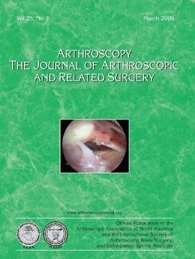
SPORTS MEDICINE
Similar analgesic efficacy with liposomal bupivacaine and femoral nerve block in ACLR
This report has been verified
by one or more authors of the
original publication.
Arthroscopy. 2016 Sep;32(9):1838-45
84 patients scheduled for anterior cruciate ligament (ACL) reconstruction were randomized to multimodal postoperative analgesia including infiltration analgesia with liposomal bupivacaine or a femoral nerve block. The purpose of this study was to determine if liposomal bupivacaine infiltration offered noninferior analgesic efficacy compared to a femoral nerve block, assessed over the first 4 days postoperatively. In the period of 5-8 hours after surgery, pain scores were significantly higher among those treated with liposomal bupivacaine infiltration compared to those who received a femoral nerve block; otherwise, pain scores and analgesic consumption did not significantly differ between groups.
Unlock the full ACE Report
You have access to {0} free articles per month.Click below to unlock and view this {1}
Unlock NowCritical appraisals of the latest, high-impact randomized controlled trials and systematic reviews in orthopaedics
Access to OrthoEvidence podcast content, including collaborations with the Journal of Bone and Joint Surgery, interviews with internationally recognized surgeons, and roundtable discussions on orthopaedic news and topics
Subscription to The Pulse, a twice-weekly evidence-based newsletter designed to help you make better clinical decisions
Exclusive access to original content articles, including in-house systematic reviews, and articles on health research methods and hot orthopaedic topics
Or upgrade today and gain access to all OrthoEvidence content for just $1.99 per week.
Already have an account? Log in


Subscribe to "The Pulse"
Evidence-Based Orthopaedics direct to your inbox.
{0} of {1} free articles
Become an OrthoEvidence Premium Member. Expand your perspective with high-quality evidence.
Upgrade Now













































































